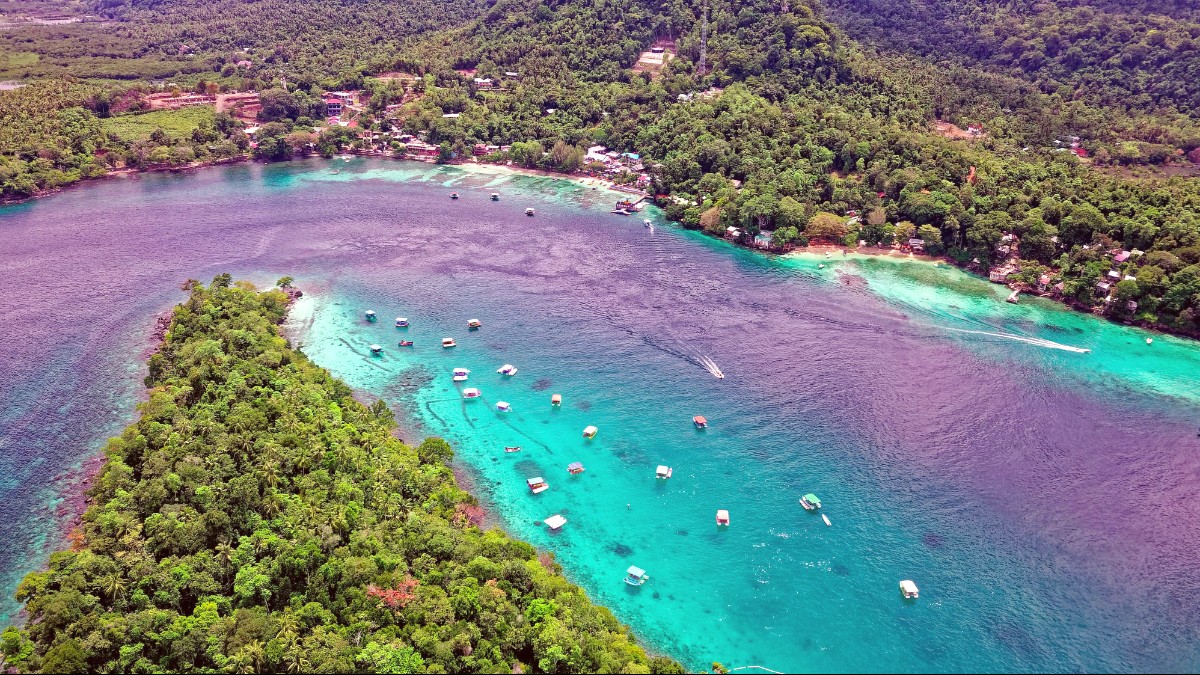
Indonesia
Aceh experiences a tropical rainforest climate, with high temperatures and consistent humidity year-round. Average daily temperatures typically range from 26°C to 32°C (79°F to 90°F). Humidity often exceeds 80 percent. This constant warmth brings pleasant weather for beach activities and outdoor exploration during many months. However, the consistent heat calls for careful hydration and planning activities to avoid the midday sun. Locals often advise seeking shade during the hottest parts of the day.
The year divides into two main seasons: the dry season and the wet season. The dry season runs from May to September, characterized by less rainfall and more sunshine. This period is often ideal for outdoor pursuits. The wet season, from October to April, brings heavier and more frequent rainfall, often occurring in short, intense bursts rather than continuous downpours. Enjoy activities during the wet season, but flexibility in your plans works well.
High Season (June - August): Best weather, less rain, ample sunshine. Ideal for beach activities, diving, and snorkeling. Expect higher accommodation prices and more tourists, especially on Pulau Weh. Booking well in advance helps.
Shoulder Season (April - May, September - October): Fewer crowds, more moderate prices. Weather remains mostly favorable with sunny days and occasional showers. Many find this period relaxing with good activity conditions.
Low Season (November - March): Lowest prices for flights and accommodation. Fewer tourists, bringing a quieter experience. Landscape appears greener due to increased rainfall. Significant rainfall can disrupt outdoor plans; water visibility for diving might reduce.
Important notes on regional weather patterns.
Aceh is not directly impacted by hurricanes. The region experiences a monsoon climate, with the wet season bringing higher rainfall.
Occasional localized flooding can occur during heavy downpours, especially in low-lying areas or near rivers. Check local forecasts upon arrival.
When to plan for specific experiences.
Peak surf season for Aceh's west coast (Simeulue, Banyak Islands) is April to September. This coincides with the dry season, bringing consistent swells.
Dry season (May - September) is better to avoid slippery conditions and leeches. Paths stay clearer, and river crossings are safer.
Optimizing your visit for underwater exploration or cultural immersion.
Best visibility around Pulau Weh (Sabang) is typically May to September. Dive centers operate fully.
Dates for Islamic holidays, like Eid al-Fitr and Eid al-Adha, vary annually based on the lunar calendar. Check local calendars for specific dates.
Indonesia offers several visa options. Citizens of certain countries (mainly ASEAN) can enter without a visa for up to 30 days. Many nationalities, including Australia, Canada, EU, UK, and USA, access a Visa-on-Arrival (VoA), valid for 30 days with one 30-day extension possible. An E-Visa (B211A), initially valid for 60 days, can be extended twice for 60 days each, allowing up to 180 days. Other visa types exist for longer stays. Confirm your specific visa needs well before your journey. Regulations can change, so consult your Indonesian Embassy or Consulate.
Have your passport valid for at least 6 months from entry, proof of departure from Indonesia (confirmed flight ticket out), and a demonstration of sufficient funds for your stay. Passport photos may be useful for other visa types or extensions. All travelers submit an electronic customs declaration (e-CD) form upon arrival; complete this online beforehand for convenience.
IDR 500,000, payable at designated counters upon arrival.
Electronic customs declaration (e-CD) required. Complete online before arrival.
Have documents ready. Officers may inquire about visit purpose and duration. Maintain a polite demeanor.
Standard tourism activities do not need special permits. Other activities (research, journalism) have specific permit processes.
Yellow Fever vaccination needed only from endemic countries. No other mandatory vaccinations for general entry.
Aceh travel can be quite affordable. Prices vary with your travel style.
The official currency is the Indonesian Rupiah (IDR). ATMs dispense IDR in Banda Aceh and Sabang (Pulau Weh), with typical withdrawal limits. Credit cards find acceptance in larger hotels and dive centers, but cash remains king for smaller establishments, markets, and local transport. Exchange foreign currency at reputable money changers or banks, avoiding unofficial services.
These ranges vary based on location and time of year.
Aceh is in a seismically active zone. The region experienced the devastating 2004 tsunami. Tsunami warning systems are active, and evacuation routes exist. If you feel a strong, prolonged earthquake near the coast, move to higher ground immediately.
Located on the "Ring of Fire." Learn about and follow evacuation routes if staying near the coast.
Tsunami warning systems are in place.
Move to higher ground if a strong earthquake occurs near the coast.
Flooding can happen during the wet season in low-lying areas. Landslides are a risk in mountainous regions after heavy rain.
Monitor local forecasts, especially for mountain excursions.
Some roads may become impassable during heavy rains.
Travel insurance is highly recommended. It covers medical emergencies, evacuation, trip cancellation, and lost belongings.
Consider World Nomads or SafetyWing. Insubuy also has options.
Review policy for adventure activity coverage if you plan diving or surfing.
| Service | Number | Notes |
|---|---|---|
| Police | 110 | For crime incidents. Obtain a police report for insurance claims. |
| Ambulance/Medical | 118 | For medical emergencies. Proceed to the nearest hospital or clinic. |
| Fire Department | 113 | For fire emergencies. |